Today in the House of Commons, Labour MP Peter Prinsley proposed cutting the UK’s planned order of F-35 fighter jets by one to preserve the BBC World Service’s vital role as a global soft power asset.
Prinsley noted that the Foreign Office currently contributes around £100 million annually to the BBC World Service, which he compared to the cost of a single F-35 jet.
Prinsley posed the question to Hamish Falconer, the Parliamentary Under-Secretary of State for Foreign, Commonwealth and Development Affairs, asking, “Would the Minister agree that we might consider acquiring only 73 of them, if that was the price of preserving the BBC World Service?”
In response, Falconer acknowledged the BBC World Service’s significant value, both internationally and as a UK soft power asset. He confirmed that the government provides £104 million annually to the service, which he described as “very good value indeed.” However, Falconer was careful not to engage in any direct discussion of budgetary changes, stating, “I will not seek to get into budget negotiations in advance of the Budget—I know better than that.”
The exchange also prompted a moment of light-hearted intervention from Speaker Sir Lindsay Hoyle, who called for order when another MP, Fred Thomas, crossed behind Falconer mid-response, saying, “I am really going to have to say something to the Whips.”
While no formal proposal has been made to reduce the number of F-35 jets, and it’s unlikely, the exchange highlights the importance of the BBC World Service in international relations and the cost of maintaining the UK’s defence capabilities.
The F-35 boosts UK jobs and industry
The F-35 fighter jet programme has become a cornerstone of the UK’s defence industry, creating significant economic benefits and supporting thousands of jobs. As the only Level 1 partner in the Joint Strike Fighter programme, the UK plays a critical role in the production of the aircraft, which will see more than 3,000 jets built worldwide. The Ministry of Defence estimates that the programme could generate between 19,000 and 25,000 jobs across various sectors, from manufacturing and engineering to software development.
British companies such as BAE Systems, GE Aviation, Martin-Baker, and Rolls-Royce are key suppliers for the F-35, providing essential components and expertise. At BAE’s facility in Samlesbury, engineers work on developing software for the aircraft, including vital updates like Block 3i, which equips the jets with nearly 90% of the software needed for full operational capability. The programme has been described as a major driver for high-skill jobs in the UK, with its impact felt across the defence sector and beyond.
However, the financial impact of the F-35 goes beyond job creation. The programme is expected to generate around £1 billion in revenue for UK industry at peak production, with British firms already securing £5 billion worth of contracts. While former Defence Minister Philip Dunne has described the F-35 programme as the most valuable defence initiative of modern times, contributing to economic growth and technological advancement, the overall cost of the programme has faced some criticism. As with any large defence investment, questions remain about balancing the substantial financial commitment with broader public spending priorities.
Funding ‘ringfenced’ for Britain to operate 74 F-35 jets
Earlier this year, we reported that the UK had ringfenced specific funding for the purchase of 74 F-35 jets, as confirmed by James Cartlidge, then Minister of State for Defence Procurement, in his communication with Jeremy Quin MP, previous Chair of the House of Commons Defence Committee.
He stated:
“Following the successful stand up of 809NAS in December 2023, Force growth will continue to mature and build our frontline squadrons’ capabilities out to December 2025. Force growth remains an actively managed issue. We have already implemented the first increased recruitment of the required engineering workforce across the RN and RAF. The Operational Conversion Unit continues to graduate F-35B pilots into the Force at a sufficient rate. Additionally, the Force has trained a new tactical weapons instructor and 6 flying instructors, which has provided additional instructor depth. However, Lockheed Martin has currently suspended aircraft release post-production as they have experienced software instability during developmental testing of Technical Refresh 3, the next pan-platform software upgrade. We are aware of the current short-term delays to UK aircraft deliveries. At this time, it is not assessed to impact the scheduled FOC declaration at the end of 2025.
Beyond FOC, deliveries of ‘Tranche 2’ will start and the next significant operational capability development will occur towards the end of the decade, with UK weapons
(METEOR and SPEAR 3) being fielded on the UK’s front-line. UK and JPO negotiations regarding the ‘Tranche 2’ buy of a further 27 F-35 aircraft are going well. This next procurement phase is expected to complete the internal approvals process during summer 2024. It will realise our long-term ambition to deepen Carrier Enabled Power Projection capability and will bring the UK fleet up to 74 aircraft, allowing us to create a third front line squadron by 2033. Funding for this next phase has been ringfenced under an approved ABC Option.”
The United Kingdom has also, it appears, signalled a reaffirmation of its commitment to procure 138 F-35B aircraft, as per the original plan laid out in the early stages of the programme. In a recent parliamentary exchange, James Cartlidge, Minister of State at the Ministry of Defence, provided a detailed response regarding the UK’s commitment to the F-35 programme.
On 5th February 2024, he stated:
“All Partner Nations place orders for F-35 through the Joint Program Office in low-rate initial production Lots. The average time between the multi-national orders being placed for each Lot and deliveries to customer nations is between two to four years.
For details of United Kingdom delivery timescales from Lot 3 to Lot 14, I refer the right hon. Member to the answer that Baroness Goldie gave to the Noble Lord, Lord Moonie on 4 November 2019 to Question HL520, which remains extant. The multi-national order for low-rate initial production Lots 15-17 was placed in early 2023, which set delivery timescales of a further thirteen UK F-35B aircraft out to 2025.
The UK remains committed to 138 aircraft through the life of the programme. However, no contracts have been placed by any nation beyond production Lot 17. Precise details of delivery timescales for subsequent production Lots will be taken at the appropriate time, as part of the wider multi-national orders. This ensures the most appropriate capability and the best value for money.”


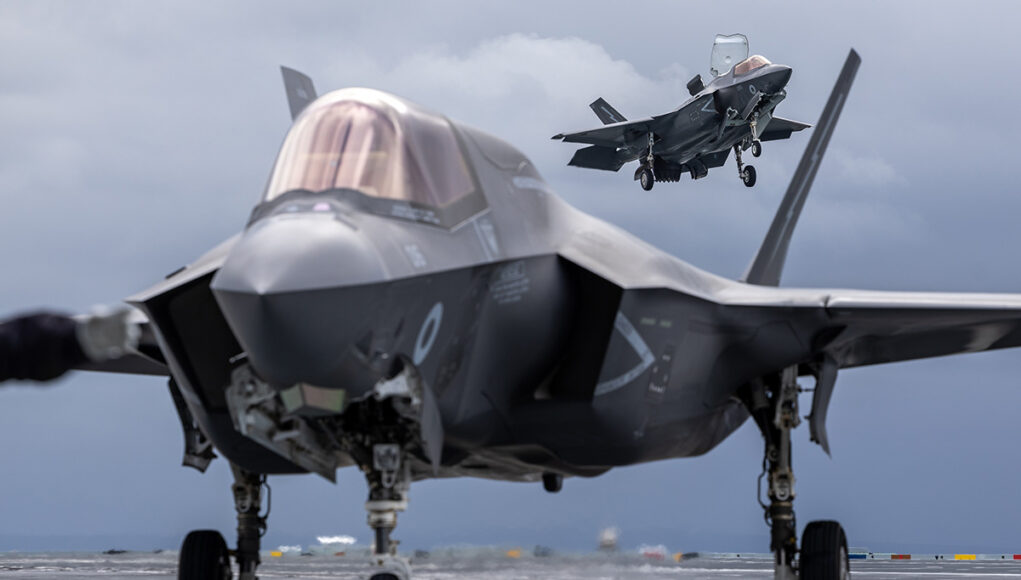

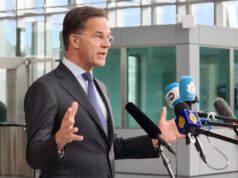




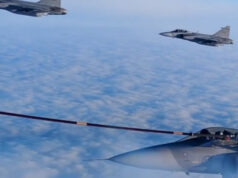
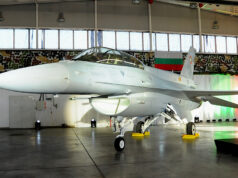

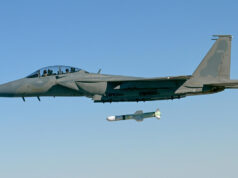

How about MPs fund it through their own high wages and tax payer funds for their expenses and second homes?
I support the BBC World Service, but not at the expense of hard power.
Won’t argue with that one , well said 👍
I’m afraid MPs salaries, in the grand scheme of things, doesn’t add up to a whole can of beans. Getting rid of second homes would mean they would need to be put up in hotels which would obviously be more expensive.
Hard power costs money and I don’t think this guy has a clue what it is for or why we need it.
MP salary’s are terrible, This is largely the reason we end up with so many muppets. Anyone who thinks £91,000 in central London is highly paid need not apply.
Agree.
And trying to clamp down on second jobs means all the barristers and older PLC directors have to choose. So the proper experience is lost to the house.
So £150,000 per annum ( no second jobs),four reasonable quality apartment blocks for one person per apartment (there is no need for an MP to bring his or her family to work) on the outskirts of London within decent commuting distance and secretarial support paid for by the exchequer ( no fiddles employing family or friends). In other words what every other person employed in central London has to do, including my brother in law. He doesn’t find it a problem. He goes home at the weekend to Shroshire.
I’m guessing your Brother doesn’t run the country on the other hand…
No. but his degree, his international travel trouble shooting for a multi national and his earlier background in the cabinet office probably makes him a better bet than this cabinet and most of the last one. Having said that I think thr point is that MP’s do not have to have all the goodies to do their job properly.
No but at the same time you want the best people in the country running for MP really. If someone is going “I could accept this ceo role, or run for MP.” Don’t we want them at least considering the MP job?
Precisely my point. If MP’s had a good pay scale and benefits the “right people” might well stand for parliament. It’ not uncommon in the U.S. and other countries for an executive to take time out for public service.
I’m guessing your brother in law still wouldn’t swap jobs. Why swap his job for one where he is regarded as a liar and a cheat with the media poking around in his private affairs.
Bang on Mark. Not for a month of Sundays…🙂
That’s a bed they’ve made for themselves. And it’s something thy can fix but seem incapable of. Even the media if they poked around and found nothing they’d soon stop poking.
Yes – nothing much appealing about being a politican.
I know mate, I was not seriously suggesting, even if they added it all up, that it would amount to the cost of even one plane.
It’s more the principle.
I assume this Labour MP is….one of those Labour MPs some of us dread.
If you really want to get MPs working hard for the country then when they enter the house liquidate all their assets and hand them over to the treasury and they get them back when they leave + or – a percentage of how the economy of the country is faring. Granted one or two of them might work themselves to death in the process but I think it is a fair trade.
They want to be in government we want them to put their money where their mouths are.
Interesting idea. Whilst it is true that Governments can seriously damage a country improving the economy is far more difficult. A Government can set the conditions for a great economy but it is not them making it happen especially if you have liquidated their assets.
Part of the problem with being in Government is that the sort of people we need running the country wouldn’t been seen dead under the current regime.
The number of MPs with real wold private sector experience is alarmingly low. It’s like running a company where non on of the management know what the company does. So we’ve got the legal guys saying we need more legal stuff, the HR department wanting more chapters in the employee handbook, the Health and safe guys want more Audits and PPE, and bean counters deciding that increasing the companies admin staff, more pay rises for the admin staff and loading the company with more debt.They obviously know there’s a hardworking shop floor doing something but what is mystery to them, they exist to provide for them.
Unfortuneately I think we are going to get to know this lot far too well in the fullness of time. I think this one comes from a long line of left wing politicians. None of them noteworthy I don’t think.
Do you have any idea how much an MP gets for a second home in London? It’s £2000 per month or £2600 if you have a family.
That puts them in the bottom 40% of rental choices in London.
How much more do you want to cut that buy?
As I said to Mark, I was more serious on the principle of removing MPs perks before cutting hard power military assets.
OK, so by his sums that’s 1 year, what’s his long term proposal? Kill off the F35s and go back to Fairey Swordfish ??
It is derisory.
£2600 just about pays a £500k mortgage at present rates.
Good luck finding anywhere within walking distance of well anywhere useful in London for that sort of money!
To be fair that is a London problem. Move parliament to the North West. Plenty of large detached residences for a lot less that £500000. I’m sure that some Saudi Prince would want a very fancy palace in London that would more than pay for the move.
Personally I don’t think that’s a bad idea, there is really no need for government to be in London, it would actually allow the government to flog a lot of assets and save a fortune if it moves to a regional city.
I always enjoy reading the posts of people that want to flog every last ancient asset of our nation to be a spiteful pennypincher.
Do you really think we should sell the Palace at Westminster to a Saudi oil prince?
How dense could you possibly be to think that’s remotely a good idea?
I sometimes forget that sarcasm is sometimes hard to pick out in the written word. The underlay point is that a large number of the ministries could be moved to low cost centres outside of London and and a number of the very large older buildings that house them could easily be repurposed into apartments to ease the housing cost crisis in the capitol. It would also allow a large part of the Civil Service’s London Weighting to be repurposed for other uses. Sometimes on here you need to be looking for the subtext.
Except of course thats not all they can claim for. Angela Rayner with two dependants can claim £29,290 plus £6,680 per child plus another £6,630 for associated accommodation costs. So that’s basically £50k. Plus her basic salary of £91k and her additional salary as a cabinet minister of £66k. So far Angela Rayner has cost the tax payer £206k. In addition to that she can claim another £250k for staffing expenses. Personally I don’t think she is worth 10% of that. The same goes for the majority of them. The tax payers alliance had the cost of parliament at 0.5 billion per annum on 2006/7 prices. I can only imagine the cost today.
That’s not quite true. My land lord has a great 3 bed worth £500k but only has a 25% share, ergo, a mortgage for £125k in Croydon and Croydon now has excellent connectivity with Victoria.
What are you talking about, Jim? £2000 per month can rent a perfectly good 2-bed flat within a 30 min commute of Westminster, say Camberwell or Muswell Hill. This is for a second home, not a main home in the constituency.
I have always thought that MP’s not based in London should be housed in at least two tower blocks owned by the taxpayer with their own kitchens etc. Closing all the bars, no one else has bars at their place of work, but an unsubsidised restaurant to provide food as required.
Yawn. It’s almost as if your constant BS is just puked out by ChatGPT it’s so predictable and pathetic.
Whereas we can tell almost to the word what you are about to comment just by reading the username.
Keep on topic.
👍
Totally agree with that
Hiya Bud , should this not be funded via the UK overseas aid budget? It struck me as odd as to propose taking it from defence – seems odd.
A sample of one-I watch some BBC (the news). It’s way better that the local insular left wing garbage served up by TVNZ here. 😆
Evening mate.
It’s not odd when you remember how some of these left wingers are wired.
Agreed as always Daniele
frankly, 1 threat to the BBC’s soft power is the right-wing defund the BBC who wants the BBC defunded
A very good threat since BBC has no credibility.
What evidence do you have that the world Service has “no credibility”, and compared to what?
Well as a licence payer I helped fund Gary Linekers £1.3 m per year salary (yeah I know he is taking a cut ..well, boo hoo!) so yeah I think too much money goes towards celebrities salaries and not enough towards good programs anymore, so yeah the BBC needs to be reined in a bit.
Your licence fee is under 200 quid.
Your impact is functionally a rounding error.
Click bate title, that’s not what he is saying
So what did he say?
Use the “overseas aid” budget to fund it.
It is the only part of the BBC worth saving
thoroughly agree with you Mark.
There is no reason to do it at all. Just fund the world service through overseas aid as a worldwide educational programme.
So what’s next? The Education Dept wants the MoD to sacrifice another couple of F-35s to pay for a new school? – or the NHS wants a new hospital at the expense of half a dozen F-35s?
I jest above and I get the hard power vs soft power issue but no way on earth should the World Service be paid from the already way overstretched defence budget. This seems a bit like the now cancelled Royal Yacht that was to peddle the UK wares around the world but was to be lusciously funded out of the MoD budget to the tune of £250millon.
What a complete arse hole, give him 6 months on the front line of any unit,with service pay only. 🤔🕳️Btth.
Cool.
And what’s that going to do any their actual point?
The BBC is a leftist propaganda machine that colludes with the government and apes Labour policy and talking points. No different than Russian Pravda or the Chinese peoples daily. A bought and paid for government mouthpiece. The funniest part is that the people who pay for the TV License are being fed regular and heavy doses of left wing ideology; they’re literally paying for their own political brainwashing. The BBC is really clever. George Orwell saw it coming and here it is.
Have you actually experienced the BBC World service? Bore off.
I agree BBC world is actually nowhere near as political as BBC news which panders to a UK audience. I find BBC world is much better and more balanced, yes there’s some examples I’m sure people will find to disagree with me but on the whole it’s better.
100%
Unfortunately, they, like Skynews do have a habit of endless repetition of programmes – content should be looked at or cut.
On the radio, they are quite superb, IMHO.
Todays BBC is a conceited, warped, blinkered, ideological ultra liberal propaganda tool. I grew up in the 60’s & 70’s loving the BBC, but for at least the last 20-30 years it’s become a parody of its actual charter values & so blatently biased, continually preaching it’s perverse views, demonising & silencing many who disagree. Their moral compass is often profoundly way out.
So unless the BBC has a stealth deep strike & air combat wing we could use I don’t think any UK defence assets should be limited or cut to pay for it when we’re reduced to dangerously weak force & capability levels.
Did we have MPs arguing to cut RN/RAF assets in 1938/39?
Here’s a question.
You decide the BBC World Service as a “conceited, warped, blinkered, ideological ultra liberal propaganda tool.”
What do you think of Russian and Chinese State Propaganda?
Hi ICE, Obviously a whole lot worse & some. Just observing the decline of the BBC as a whole.
I would suggest you are talking about programmes like ‘Breakfast’ (?) which is where overpaid mediocre presenters get paid to pander to Govt Ministers without questioning them.
Living in Latvia, it was difficult to watch, so I stopped.
Will we ever see another Jeremy Paxman? There was a brain and a person not afraid to ask the right questions.
Undoubtedly, there are a shed load of ‘presenters’ that could be culled and I suggest the BBC needs revamping with a focus on truth, investigation and presenting facts, not pandering to Ministers.
He is a politician. So an idiot. Being an idiot is part of a politicians qualification to sit in The House of Idiots and utter idiotic garbage.
My god, who voted for this shower? Over 4 more years of this lot in power, we’re all doomed!!
If HMG (which means MoD too) were serious about carrier air they would order outstanding 64 aircraft for the ‘original’ estimates of 138 and then look to expand even on that, given the threats from every direction to the East.
In a crisis, they will want the option of two CVFs in overload with many more than the often stated 36 jets onboard, while allowing for the possible loss of airframes in action and be able to replenish those losses (also brings into question ammunition ships to replenish munitions, which well we all know is a present day disaster).
If MOD did that, the Treasury would burst out laughing and ask what programmes MOD was planning on cancelling to pay for it. No answer would mean no order and probably a new Minister. So let me take the part of the Treasury and ask you, where would you get the £5bn to buy the planes, and what would you cancel to pay for recruitment, training, operation and maintenance for 64 extra planes, when MOD haven’t even identified how it’s going to pay to operate a third deployable squadron yet, much less seven?
Let’s try to get HMG serious about Defence as a whole, before worrying about whether they are serious about a particular capability.
The bbc gets more than enough money , the MoD however need much more , maybe we should do it the other way around and give the MoD some of the anti british BBC,s funding
Bore off.
The UK should poarate 80 F35 Bs for service on the RN Carrier’s and 30 or
40 F35 As to bolster the RAF force to operate with the typhoon fighter. The budget for the MOD should be 3%. During the Cold War we spent 4.5% of GDP on defense.
The world is not going to get safer as time goes on. We need to prepare now. The peace dividend chopped arms and legs of the defense budget and hollowed out capability became a shadow of what is was and should be.
How about this idiot spends a year at sea defending his so called country instead of expect a very few to do it for the rest. The BBC needs to raise it own cash. May be the over inflatted NHS could become more efficient and give the BBC 0.1% of its budget?? That would pay for a great world service??
It’s clear to me the mp mentioned is a total muppet where would it stop reduce 1 fighter fot this cost and reduce 1 fighter to cover this cost the man is a total loon
Politicians can be quite scary to be honest.
Any ideas what the 3rd operational sqn might be, as we build up to the 74 F-35Bs? I’d like to see 111 sqn reform on it but I dare FAA supporters would want to see an 800 or 801 reform?
The World Service is an incredibly powerful soft power tool.
Some muppets on here can distain it, but, it helped create a Warsaw Pact full of people questioning their Leaders and led to no member of BAOR being attacked by 3rd Guards Shock Army.
There needs to be an equilibrium AND understanding between hard and soft power.
I’ve educated people in English for over 25 years, used the Overseas Service to achieve the outcome of understanding a different viewpoint and created a channel of influence of our values and ideals.
Many others have done the same before the Internet.
I disagree about the logic of the MP and cutting F35, cut Breakfast, instead.
However, don’t disparage the World Service, British Forces are still alive because of the soft power it provides.
Can’t believe I’m reading this can’t believe it.
Made me laugh did that…I assume it was a joke….wasn’t it…??
Hard to tell there Grizzler, actually hard to tell. 🙄🕳️Btth.
Oops I must be in the naughty corner. Everything’s waiting for approval. 🙄🕳️Btth.
you’re not, site wide tech issue
Righto George, ta very much. 😃. Ok people, back on the Christmas cards list. Now Santa 🎅, pull up a bollard….. 🙃 🕳️ Btth.
An excellent idea. The BBC reaches around the world 24/7, with an audience of over 1 billion. On a basis of influence/soft power/diplomatic reach per pound spent the BBC far out performs the occasional time spent at sea by the ‘Dockyard cat’ carrier force.
The BBC….an institution whom has not really added much demonstrable value to our soft power for some time, nor much quality reporting domestically recently either frankly.
If we were to try and really get value out of it, then the international arm would be fully funded via the Foreign office, with significant editorial input via the ministry accordingly. The BBC World Service should be very much Britain’s message to the world, as well as being quality journalism.